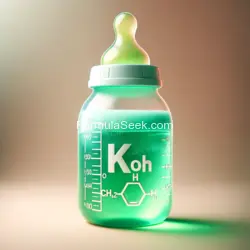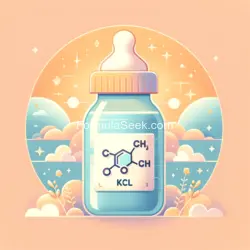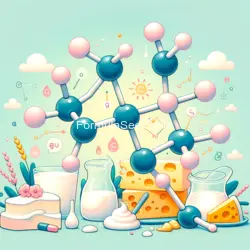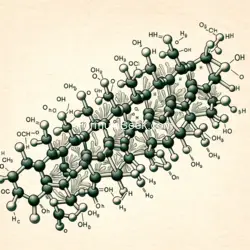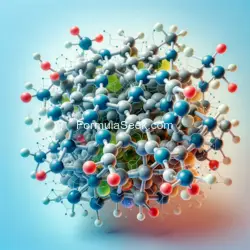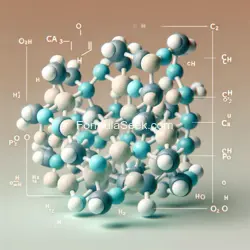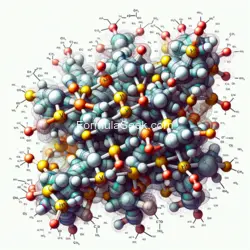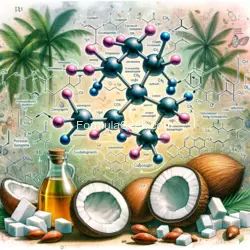All Posts
Navigating Baby Feeding Challenges: A Parent's Guide to Common Concerns
Published: 4/15/2024 6:00:00 PM by Bryan
Seeing your baby spit up can be worrying, but it's pretty common. Babies have immature digestive systems, and sometimes, food comes back up. Here's what can help:
- Keep Feedings Calm: Try to feed in a quiet, relaxed setting.
- Take Your Time: Don't rush feedings. Allow your baby to take breaks.
- Burp Your Baby: Frequent burping helps eliminate air swallowed during feeding.
- Elevate After Eating: Keep your baby upright for 20-30 minutes after feeding.
Talk to your pediatrician if your baby seems uncomfortable or is not gaining weight. They can check for something more serious, like GERD (gastroesophageal reflux disease).
Read more by clicking here
Smooth Moves: Transitioning Your Baby from Formula to Solid Foods
Published: 4/14/2024 6:00:00 PM by Bryan
Around six months old, your baby might start showing signs that they're curious about what you're eating and ready to try some solid foods. Here are a few clues to look out for:
- They can sit up with little or no support.
- They have good head and neck control.
- They show interest in your food, maybe even reaching for it!
- They open their mouth when food comes their way.
- They can move food from a spoon into their throat.
Read more by clicking here
Keeping It Clean: The Ultimate Guide to Bottle Feeding Hygiene
Published: 4/13/2024 6:00:00 PM by Bryan
First off, babies' immune systems are still developing, making them more vulnerable to germs than older kids and adults. Proper cleaning and sterilizing of feeding bottles and accessories help protect your baby from unwanted bugs that can cause infections.
Read more by clicking here
Navigating the World of Bottle Feeding: Scheduling and Frequency
Published: 4/12/2024 6:00:00 PM by Bryan
Babies are unique, and their feeding needs can vary. Babies must eat more frequently than older kids and adults, who eat three meals daily. Here's a general guide to help you understand how often your baby might need feeding based on age.
Read more by clicking here
Understanding Baby's Hunger: A Guide to Feeding Cues
Published: 4/11/2024 6:00:00 PM by Bryan
Your baby knows when they're hungry and has ways to show it. Catching these early cues means you can start feeding before the crying stage for a more peaceful mealtime. Here's what to look for...
Read more by clicking here
Mastering Bottle Feeding: Techniques and Positions for Happy Babies
Published: 4/10/2024 6:00:00 PM by Bryan
Just like adults, babies have their preferences when it comes to eating. Finding a comfortable position is vital to a smooth feeding session. Here are some popular options...
Read more by clicking here
How to Safely Prepare Infant Formula: A Step-by-Step Guide
Published: 4/9/2024 6:00:00 PM by Bryan
First things first, always wash your hands thoroughly with soap and water before preparing the formula. It's the best way to keep germs away from your baby's food.
Read more by clicking here
Getting Ready for Bottle Feeding: A Simple Guide for Parents
Published: 4/8/2024 6:00:00 PM by Bryan
Picking the perfect bottle and nipple isn't just about what looks cute (though some pretty adorable options exist!). It's about what works best for your baby. Here's how to choose...
Read more by clicking here
Decoding Infant Formula: Types, Brands, and How to Choose
Published: 4/7/2024 6:00:00 PM by Bryan
When you stroll down the baby food aisle, you'll see a bunch of different infant formulas. Each type has unique benefits and is designed for babies with various needs. Here's the scoop...
Read more by clicking here
The Basics of Infant Formula: A Guide for New Parents
Published: 4/6/2024 6:00:00 PM by Bryan
Hello, new parents! Today, we're diving into infant formula, a key topic for many families. Whether you're exploring formula options before your baby arrives or considering a switch, this guide is for you. Let's break down the essentials of infant formula to ensure your little one gets the best start.
Read more by clicking here
The Science Behind L-Tryptophan: Why It's Added to Infant Formula
Published: 1/11/2024 12:11:00 AM by Bryan
When it comes to the health and well-being of our little ones, parents want nothing but the best. That's why infant formula is meticulously formulated to mimic breast milk's essential nutrients as closely as possible. One of these crucial components is L-Tryptophan, an amino acid found in breast milk, which plays a vital role in a baby's growth and development. In this article, we'll delve into the science behind L-Tryptophan and explain why it's added to infant formula.
Read more by clicking here
The Science Behind L-Tyrosine: Why It's a Vital Ingredient in Infant Formula
Published: 1/11/2024 12:06:00 AM by Bryan
When it comes to infant nutrition, every component of a formula is carefully selected to provide essential nutrients for a baby's growth and development. One such crucial ingredient is L-Tyrosine. This amino acid plays a significant role in infant formula, and its inclusion is not arbitrary but backed by scientific research. In this article, we will explore what L-Tyrosine is, its importance for infants, and why it's added to infant formula.
Read more by clicking here
The Significance of L-Cystine Dihydrochloride in Infant Nutrition
Published: 1/10/2024 9:26:00 PM by Bryan
When it comes to infant formula, every ingredient serves a specific purpose to ensure the health and development of babies, especially those who cannot be breastfed. One such ingredient, often listed among many, is L-Cystine Dihydrochloride. Though not commonly discussed, it plays a crucial role in infant nutrition.
Read more by clicking here
The Role of Nucleotides in Infant Formula: Nurturing Optimal Growth and Health
Published: 1/10/2024 9:11:00 PM by Bryan
In the journey of parenting, particularly during the early stages of a baby’s life, ensuring optimal nutrition is a top priority. While breast milk is often considered the gold standard for infant nutrition, circumstances sometimes lead parents to seek alternatives like infant formula. A key component in many of these formulas is something called nucleotides. But what exactly are nucleotides, and why are they included in infant formula?
Read more by clicking here
Understanding Potassium Hydroxide: Its Role in Infant Formula
Published: 1/10/2024 8:56:00 PM by Bryan
In infant nutrition, ensuring that each ingredient contributes to the health and development of babies is paramount. One such ingredient, which might initially raise eyebrows due to its chemical sounding name, is potassium hydroxide. To understand why it's added to infant formula, it's essential to delve into potassium hydroxide and its role in infant nutrition.
Read more by clicking here
What is Potassium Iodide and its role in infant formula?
Published: 1/10/2024 8:42:00 PM by Bryan
Potassium iodide is a compound that has garnered significant attention, particularly in the context of its inclusion in infant formula. In this blog post, we'll delve into what potassium iodide is, its importance, and why it's a crucial component in infant formula.
Read more by clicking here
Understanding the importance of potassium phosphate in infant formulas
Published: 1/9/2024 8:48:00 PM by Bryan
Potassium phosphate is a critical component often found in infant formulas, playing a vital role in ensuring the health and growth of infants who rely on these formulas as their primary source of nutrition. Understanding the importance of potassium phosphate in infant formulas requires a basic grasp of its functions and the reasons behind its inclusion.
Read more by clicking here
Understanding Vitamin B12 and Its Importance in Infant Formula
Published: 1/9/2024 8:33:00 PM by Bryan
In the realm of infant nutrition, ensuring the right balance of vitamins and minerals is crucial for the healthy development of a baby. One such essential nutrient is Vitamin B12, also known as cobalamin. This blog post delves into the significance of Vitamin B12, particularly its role in infant formula, shedding light on why this nutrient is indispensable for infants, especially those who might not be able to obtain it from natural sources.
Read more by clicking here
Understanding the Importance of Vitamin D3 in Infant Formula
Published: 1/1/2024 10:20:00 AM by Bryan
As new parents, ensuring the health and well-being of your little one is paramount. Among the many nutrients essential for growth and development, Vitamin D3 stands out, especially in the context of infant nutrition. This blog post will delve into what Vitamin D3 is, its significance for infants, and why it's a common additive in infant formula.
Read more by clicking here
Sodium selenate and infant formula
Published: 1/1/2024 10:07:00 AM by Bryan
Sodium selenate is a compound that has garnered attention for its role in human health and nutrition, particularly when it comes to the formulation of infant foods. Understanding what sodium selenate is and why it's added to infant formula can provide insights into its importance in early childhood development.
Read more by clicking here
Understanding Biotin: The Vital Nutrient in Infant Formula
Published: 12/30/2023 11:04:00 PM by Bryan
Biotin, also known as Vitamin B7 or Vitamin H, is a water-soluble vitamin that is crucial for everyone, especially infants. It plays a vital role in energy metabolism, functioning as a coenzyme in a variety of metabolic reactions that break down fats, carbohydrates, and proteins. Biotin is essential for maintaining healthy hair, skin, and nails, and it's also pivotal for neurological functions and DNA synthesis.
Read more by clicking here
Understanding Phylloquinone: Its Importance in Infant Formula
Published: 12/30/2023 10:25:00 PM by Bryan
As parents, ensuring our newborns' optimal health and development is our top priority. One of the crucial components in achieving this is understanding the nutrients they need, one of which is Phylloquinone, commonly known as Vitamin K1. This blog post will delve into what Phylloquinone is, its importance for infants, and why it's added to infant formula.
Read more by clicking here
Understanding Manganese Sulfate in Infant Formula
Published: 12/30/2023 10:18:00 PM by Bryan
In infant nutrition, every ingredient in the formula should play a crucial role in ensuring babies get the necessary nutrients for healthy growth and development. Manganese sulfate is one such ingredient that, while only needed in small amounts, is vital for overall health. This blog post delves into manganese sulfate, its importance in infant diets, and why it's added to infant formula.
Read more by clicking here
Understanding Folic Acid: A Vital Nutrient for Infants
Published: 12/30/2023 3:16:00 PM by Bryan
When it comes to infant nutrition, every component of their diet is crucial for their development and health. One such essential nutrient is Folic Acid, also known as Vitamin B9. This water-soluble vitamin plays a pivotal role in the growth and development of infants, which is why it is commonly added to infant formulas. This blog post delves into the science behind Folic Acid, its importance, and why it's a standard addition to infant nutrition.
Read more by clicking here
Understanding Pyridoxine Hydrochloride and Its Role in Infant Formula
Published: 12/30/2023 2:56:00 PM by Bryan
When it comes to the health and nutrition of infants, every ingredient in their diet matters. One ingredient often appearing in infant formula is Pyridoxine Hydrochloride, commonly known as Vitamin B6. This essential nutrient plays a vital role in infants' overall development and well-being. In this blog post, we'll explore what Pyridoxine Hydrochloride is, its benefits, and why it's added to infant formula.
Read more by clicking here
Understanding Riboflavin: A Vital Nutrient in Infant Formula
Published: 12/30/2023 2:49:00 PM by Bryan
When it comes to infant nutrition, every ingredient counts. One of the essential vitamins you'll often find listed on the label of baby formulas is Riboflavin, also known as Vitamin B2. This vital nutrient plays a crucial role in infants' overall health and development. In this blog post, we'll delve into what Riboflavin is, its importance, and why it's a key component in infant formula.
Read more by clicking here
Understanding Thiamine Hydrochloride: A Vital Nutrient in Infant Formula
Published: 12/30/2023 2:37:00 PM by Bryan
When it comes to infant nutrition, every ingredient in their formula plays a crucial role in ensuring healthy development. Thiamine Hydrochloride, often known as Vitamin B1, is a critical component. This blog post explores what Thiamine Hydrochloride is, its importance, and why it's a staple in infant formula.
Read more by clicking here
Understanding Copper Sulfate: Its Role and Importance in Infant Formula
Published: 12/21/2023 10:07:00 PM by Bryan
Copper sulfate might seem like an unusual ingredient to find in the daily diet of an infant, but it plays an essential role in promoting healthy growth and development. This compound is added to infant formula for its vital benefits, and understanding its purpose can help alleviate parents' concerns.
Read more by clicking here
The Role of Vitamin A Palmitate in Nourishing Infants through Formula
Published: 12/21/2023 9:25:00 PM by Bryan
When it comes to infant nutrition, ensuring your little one receives all the necessary nutrients is paramount. One ingredient often found in infant formula is Vitamin A Palmitate, a vital nutrient that plays a critical role in your baby’s early development. In this post, we'll delve into what Vitamin A Palmitate is and why it's a common addition to infant formula.
Read more by clicking here
Understanding L-Carnitine: Its Role in Infant Nutrition
Published: 12/21/2023 8:55:00 PM by Bryan
In the realm of infant nutrition, ensuring that babies receive the right balance of nutrients is crucial for their growth and development. One compound that plays a vital role in this balance is L-Carnitine, a naturally occurring amino acid derivative that's often added to infant formula. Here's an in-depth look at what L-Carnitine is and why it's an important ingredient in infant nutrition.
Read more by clicking here
Understanding Calcium Pantothenate: Its Role in Infant Formula
Published: 12/21/2023 7:51:00 PM by Bryan
When it comes to infant nutrition, every ingredient in formula milk plays a vital role in ensuring a baby's healthy growth and development. One such ingredient, often listed on the nutritional labels of infant formulas, is Calcium Pantothenate. This might sound complex, but it's an essential compound that plays a crucial role in various bodily functions. Let's delve into Calcium Pantothenate and why it's a key component in infant formula.
Read more by clicking here
Niacinamide in Infant Formula
Published: 12/21/2023 7:12:00 PM by Bryan
Niacinamide, also known as nicotinamide, is a form of vitamin B3 that plays a crucial role in the health and development of infants. This nutrient is often added to infant formulas to ensure that babies not breastfed receive an adequate supply. Understanding the importance of niacinamide and its role in infant nutrition can help parents make informed decisions about their baby's diet.
Read more by clicking here
Understanding Mixed Tocopherols: A Vital Ingredient in Infant Formula
Published: 12/21/2023 6:41:00 PM by Bryan
Mixed tocopherols, a term that often pops up in the ingredient lists of various food products, particularly infant formula, are a group of chemical compounds derived from vitamin E. As parents, understanding what goes into your baby's formula is crucial. This post aims to demystify mixed tocopherols and explain their importance in infant nutrition.
Read more by clicking here
Understanding Zinc Sulfate and Its Role in Infant Formula
Published: 12/21/2023 6:26:00 PM by Bryan
When it comes to infant nutrition, ensuring that babies receive all the necessary vitamins and minerals is crucial for their growth and development. One essential mineral is zinc, often incorporated into infant formulas as zinc sulfate. In this blog post, we'll explore zinc sulfate, why it's essential for infants, and its role in infant formulas.
Read more by clicking here
Understanding d-Alpha-Tocopheryl Acetate in Infant Formula
Published: 12/21/2023 6:13:00 PM by Bryan
When it comes to infant nutrition, every ingredient matters. d-Alpha-Tocopheryl Acetate, a form of Vitamin E, is one of those important components often found in infant formula. Here's what you need to know about it.
Read more by clicking here
Unraveling the Benefits of Inositol in Infant Formula
Published: 12/20/2023 4:10:00 PM by Bryan
In the intricate world of infant nutrition, every ingredient counts. Among these, inositol stands out as a crucial component, especially in infant formulas. But what exactly is inositol, and why is it so significant for babies who rely on formula?
Read more by clicking here
Understanding Taurine: Its Role in Infant Formula
Published: 12/20/2023 3:56:00 PM by Bryan
Taurine, an amino acid naturally occurring in the human body, has garnered significant attention due to its inclusion in infant formula. Unlike most amino acids, taurine is not used to build proteins. Instead, it plays a crucial role in various physiological processes, particularly infancy.
Read more by clicking here
Understanding Ascorbyl Palmitate in Infant Formula: A Quick Guide
Published: 12/20/2023 3:42:00 PM by Bryan
In the realm of infant nutrition, every ingredient plays a pivotal role in ensuring the healthy development of a baby. Ascorbyl Palmitate, a name that often appears on the labels of infant formula, is one such component. But what is Ascorbyl Palmitate, and why is it added to infant formula? This blog post aims to demystify this ingredient and explain its significance.
Read more by clicking here
Choline Chloride in Infant Formula: Understanding Its Importance
Published: 12/20/2023 3:31:00 PM by Bryan
In infant nutrition, ensuring that babies receive all the essential nutrients for healthy development is a top priority. Among these vital nutrients is choline chloride, a compound that plays a crucial role in infant formula. This blog post will explore choline chloride, its importance in infant development, and why it's added to infant formula.
Read more by clicking here
Choline Bitartrate: The Essential Ingredient in Infant Formula
Published: 12/20/2023 2:26:00 PM by Bryan
For new parents, the nutrition of their newborn is of utmost importance. Choline bitartrate stands out as a crucial ingredient among the various components of infant formula. This blog post aims to demystify Choline Bitartrate, highlighting its importance and the reason for its inclusion in infant formula.
Read more by clicking here
Understanding Ferrous Sulfate in Infant Formula
Published: 12/20/2023 11:07:00 AM by Bryan
Ferrous sulfate is a common and vital ingredient in infant formulas, playing a crucial role in the healthy development of infants. This blog post delves into what ferrous sulfate is, its importance in infant nutrition, and why it is routinely added to infant formulas.
Read more by clicking here
Potassium Chloride in Infant Formula: Understanding Its Importance
Published: 12/20/2023 9:59:00 AM by Bryan
When it comes to infant nutrition, every ingredient in baby formula plays a critical role, and potassium chloride is no exception. This essential mineral compound serves multiple purposes in maintaining the health and development of infants. Understanding why potassium chloride is added to infant formula helps reassure parents about these products' safety and nutritional adequacy.
Read more by clicking here
Understanding Soy Lecithin and Its Role in Infant Formula
Published: 12/20/2023 9:46:00 AM by Bryan
In the intricate world of infant nutrition, soy lecithin often appears as a key ingredient in many baby formulas. But what exactly is soy lecithin, and why is it added to infant formula? This blog post aims to demystify this component and explain its significance in infant nutrition.
Read more by clicking here
Understanding Calcium Carbonate in Infant Formula: A Crucial Ingredient for Early Growth
Published: 12/20/2023 9:28:00 AM by Bryan
As parents, ensuring the health and well-being of our infants is our top priority. One of the most critical elements in this journey is choosing the right infant formula. Among the various ingredients, calcium carbonate stands out for its vital role in early development. Let's explore what calcium carbonate is and why it's such an important component in infant formula.
Read more by clicking here
Understanding Schizochytrium sp. Oil and Its Role in Infant Formula
Published: 12/18/2023 8:08:00 PM by Bryan
When it comes to infant nutrition, every ingredient in baby formula is chosen with great care and purpose. One such ingredient, which might not be widely known but plays a crucial role, is Schizochytrium sp. oil. This might sound complex and scientific, but understanding its benefits is quite straightforward and important, especially for parents.
Read more by clicking here
Understanding the Benefits of Coconut Oil in Infant Formula
Published: 12/18/2023 7:25:00 PM by Bryan
In recent years, coconut oil has become a popular ingredient in various health and wellness products, including infant formulas. This shift reflects a growing recognition of the unique benefits that coconut oil can bring to the nutritional profile of infant formulas. Here, we delve into what coconut oil is and why it's increasingly being incorporated into infant formula.
Read more by clicking here
Understanding Whey Protein Concentrate in Infant Formula
Published: 12/18/2023 5:04:00 PM by Bryan
Whey protein concentrate (WPC) is a common ingredient derived from cow's milk. It's a byproduct of cheese production, where the liquid whey is separated and then processed into a powder form. This powder is rich in proteins and balances essential amino acids crucial for human health.
Read more by clicking here
Understanding Lactose in Infant Formula
Published: 12/18/2023 4:55:00 PM by Bryan
Lactose is a natural sugar found in milk and dairy products. Chemically, it's a disaccharide, meaning it's composed of two smaller sugar molecules, glucose and galactose. It's not just a source of energy; lactose plays several crucial roles, particularly in infant nutrition.
Read more by clicking here
Understanding Nonfat Milk in Infant Formula
Published: 12/18/2023 3:55:00 PM by Bryan
Nonfat milk, also known as skim milk, is milk from which all the cream (fat) has been removed. This process leaves a product that contains all the essential nutrients of milk - like proteins, vitamins, and minerals - but with significantly reduced fat content. In its powdered form, nonfat milk is commonly used in various food products, including infant formula.
Read more by clicking here
The Importance of Ascorbic Acid (Vitamin C) in Infant Formula
Published: 12/18/2023 2:49:00 PM by Bryan
Ensuring that your baby receives all the necessary nutrients is paramount. Among these essential nutrients is Ascorbic Acid, commonly known as Vitamin C. This vitamin is crucial in various bodily functions and is especially important in infant formula for babies not breastfed.
Read more by clicking here
Understanding Monoglycerides in Infant Formula
Published: 12/18/2023 1:04:00 PM by Bryan
When it comes to infant nutrition, every ingredient in baby formula is scrutinized for its benefits and potential effects. Among these ingredients, monoglycerides often raise questions for new parents. Let's dive into monoglycerides and why they're added to infant formula.
Read more by clicking here
Understanding Magnesium Chloride and Its Role in Infant Formula
Published: 12/18/2023 12:51:00 PM by Bryan
Regarding infant nutrition, ensuring the right balance of essential nutrients is vital. One of the lesser-discussed but crucial components of infant formula is magnesium chloride. This blog post delves into what magnesium chloride is and why it is an integral part of infant formula.
Read more by clicking here
The Role of Xanthan Gum in Infant Formula: Understanding Its Importance
Published: 12/18/2023 12:40:00 PM by Bryan
When it comes to infant nutrition, every ingredient in baby formula plays a crucial role. Xanthan gum, a lesser-known component, is one such ingredient that has been a topic of interest for many parents and healthcare professionals. In this blog post, we'll dive into what xanthan gum is and why it's added to infant formula.
Read more by clicking here
Understanding Potassium Citrate and Its Role in Infant Formula
Published: 12/18/2023 12:08:00 PM by Bryan
When it comes to infant nutrition, every ingredient matters. Among the many components of infant formula, potassium citrate stands out for its significant role. This blog post aims to shed light on potassium citrate and why it is a crucial ingredient in infant formula.
Read more by clicking here
Understanding DATEM: Its Role in Infant Formula
Published: 12/18/2023 9:20:00 AM by Bryan
When it comes to infant nutrition, every ingredient in formula matters. One such ingredient, often unnoticed but crucial, is DATEM – Diacetyl Tartaric Acid Esters of Mono- and Diglycerides. Let's dive into what DATEM is and why it's an important component in infant formula.
Read more by clicking here
Understanding Calcium Phosphate in Infant Formula: A Crucial Component for Healthy Growth
Published: 12/18/2023 9:09:00 AM by Bryan
As new parents or caregivers, ensuring the health and proper nutrition of an infant is paramount. One of the key ingredients often found in infant formula is calcium phosphate. This compound plays a vital role in the growth and development of babies, particularly those who are not breastfed. In this blog post, we'll delve into what calcium phosphate is, its importance in infant formula, and why it is a necessary addition for the health of your baby.
Read more by clicking here
Unveiling the Benefits of M. Alpina Oil in Infant Formula
Published: 12/17/2023 10:06:00 PM by Bryan
As parents, ensuring our infants' optimal growth and development is paramount. One of the key elements in this journey is the choice of infant formula. Amidst the myriad of ingredients listed on formula cans, one might notice "M. Alpina Oil." Though not as commonly known as others, this ingredient plays a significant role in infant nutrition.
Read more by clicking here
Understanding C. Cohnii Oil in Infant Formula: Benefits and Uses
Published: 12/16/2023 11:39:00 PM by Bryan
In infant nutrition, ensuring babies get the best possible start in life is paramount. One component that has gained attention in this realm is C. Cohnii oil. This oil, derived from a microalgae species called Crypthecodinium cohnii, is an important ingredient in many infant formulas. Let's delve into what C. Cohnii oil is and why it is added to infant formula.
Read more by clicking here
Understanding Beta-Carotene and Its Role in Infant Formula
Published: 12/16/2023 11:29:00 PM by Bryan
When it comes to the nutrition of infants, every nutrient plays a critical role, and beta-carotene is no exception. Found naturally in many fruits and vegetables, beta-carotene is a precursor to Vitamin A, an essential nutrient for human health. But why is it specifically added to infant formula? Let's dive in.
Read more by clicking here
Understanding 2'-Fucosyllactose: A Key Ingredient in Infant Formula
Published: 12/16/2023 11:09:00 PM by Bryan
In recent years, the addition of 2'-Fucosyllactose (2'-FL) to infant formula has become a topic of interest among parents and healthcare professionals. This compound, which might sound complex, plays a crucial role in infant nutrition and development. Let's delve into what 2'-fucosyllactose is and why it's an important ingredient in infant formula.
Read more by clicking here
Understanding Lutein: Its Importance in Infant Formula
Published: 12/16/2023 10:53:00 PM by Bryan
When it comes to infant nutrition, every nutrient plays a critical role in ensuring a healthy development. One such nutrient that has gained attention in recent years is Lutein. This post aims to shed light on what Lutein is, its significance, and why it is increasingly being added to infant formulas.
Read more by clicking here
Understanding Soy Oil in Infant Formula: Its Role and Importance
Published: 12/16/2023 10:47:00 PM by Bryan
When it comes to infant nutrition, every ingredient in formula milk plays a crucial role in ensuring that babies who are not breastfed still receive the essential nutrients they need for healthy growth and development. One such ingredient that often raises questions among parents is soy oil. Let's delve into what soy oil is and why it's commonly added to infant formula.
Read more by clicking here
Understanding Medium Chain Triglycerides (MCTs) in Infant Formula: A Nutritional Insight
Published: 12/16/2023 10:41:00 PM by Bryan
Medium Chain Triglycerides (MCTs) are a unique form of dietary fat that have a shorter chain length compared to the more common long chain triglycerides (LCTs). This distinct structure influences how the body processes and uses them. MCTs are typically derived from coconut oil or palm kernel oil.
Read more by clicking here
High Oleic Safflower Oil in Infant Formula: Understanding Its Importance
Published: 12/16/2023 9:51:00 PM by Bryan
The world of infant nutrition is complex and ever-evolving, with an increasing focus on the composition of infant formulas. One ingredient that has gained attention in recent years is high oleic safflower oil. This blog post aims to shed light on what high oleic safflower oil is and why it's becoming a common component in infant formula.
Read more by clicking here
The Role of Sugar in Infant Formula: Understanding the Essentials
Published: 12/16/2023 9:43:00 AM by Bryan
When it comes to infant nutrition, every ingredient counts. One component that often raises questions is sugar. Why is it added to infant formula, and what role does it play in a baby's diet? In this post, we'll explore the rationale behind sugar in infant formula, its types, and its impact on infant health.
Read more by clicking here
Understanding Casein Hydrolysate in Infant Formula
Published: 12/15/2023 10:34:00 AM by Bryan
When it comes to infant nutrition, every ingredient in baby formula is meticulously chosen to ensure the health and development of newborns. One such ingredient that often raises questions is casein hydrolysate. Let's dive into what it is and why it's added to infant formula.
Read more by clicking here
Understanding Corn Maltodextrin in Infant Formula: A Parent's Guide
Published: 12/11/2023 2:16:00 PM by Bryan
Welcome to our latest blog post where we're diving into the world of infant nutrition! Today, we're focusing on a common ingredient found in many infant formulas - Corn Maltodextrin. If you're a parent or caregiver who's ever glanced at the ingredients list on a can of infant formula and wondered what corn maltodextrin is and why it's included, this post is for you.
Read more by clicking here
Understanding the Importance of Salt in Infant Formula
Published: 1/1/0001 12:00:00 AM by Bryan
Every ingredient in baby formula plays a crucial role. Salt, in particular, might raise some eyebrows. Why is it added to infant formula, and how does it benefit babies? This blog post delves into the science behind including salt (sodium chloride) in infant formula, demystifying its purpose and highlighting its importance for infant development.
Read more by clicking here
Understanding Human Milk Oligosaccharides (HMOs) and Their Role in Infant Formula
Published: 1/1/0001 12:00:00 AM by Bryan
In the world of infant nutrition, one term has been gaining significant attention: Human Milk Oligosaccharides (HMOs). These complex carbohydrates, naturally present in human breast milk, play a crucial role in the development and well-being of infants. Recently, there has been a surge in adding HMOs to infant formula. But why is this? This blog post delves into the science of HMOs and their importance in infant feeding.
Read more by clicking here














